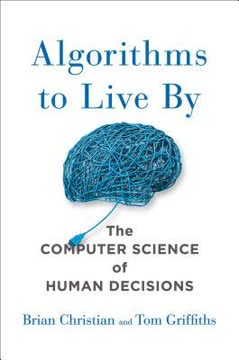Key Takeaways
1. Your career is a journey, not a destination
"Career decisions are bets about the future that rest on three components."
Long-term perspective. Viewing your career as a journey allows you to embrace opportunities, learn from setbacks, and continually evolve. Rather than fixating on a specific end goal, focus on:
- Personal growth and skill development
- Meaningful contributions to your field or organization
- Work-life balance and overall satisfaction
Flexibility and adaptability. Recognize that your interests, values, and goals may change over time. Be open to:
- Exploring new paths and industries
- Taking calculated risks
- Adjusting your career trajectory based on changing circumstances
2. Align your work with your core values for lasting fulfillment
"Seeing your job as a vocation or a calling can help you engage with it."
Identify your values. Take time to reflect on what truly matters to you in your work and life. Consider:
- Personal growth and learning opportunities
- Making a positive impact on others or society
- Financial stability and independence
- Work-life balance and flexibility
Seek alignment. Look for roles and organizations that resonate with your values. This alignment can lead to:
- Increased job satisfaction and motivation
- Greater resilience in the face of challenges
- A sense of purpose and meaning in your work
3. Effective communication is key to workplace success
"Communication is best when small numbers of people are together in visual contact in real time."
Adapt to various communication channels. In today's workplace, you must navigate multiple modes of communication effectively:
- Face-to-face interactions
- Email and instant messaging
- Video conferencing and phone calls
- Formal presentations and meetings
Develop active listening skills. Effective communication is a two-way street. Practice:
- Focusing on the speaker without interrupting
- Asking clarifying questions
- Summarizing and reflecting on what you've heard
Tailor your message. Consider your audience and choose the most appropriate communication method for each situation. Be mindful of:
- Cultural differences and potential misunderstandings
- The level of formality required
- The complexity of the information being shared
4. Embrace continuous learning to stay relevant and grow
"Expert generalists are valuable in innovation settings."
Cultivate curiosity. Approach your work with a growth mindset and a desire to learn. This can lead to:
- Increased adaptability in a rapidly changing job market
- Enhanced problem-solving skills
- Greater job satisfaction and career advancement opportunities
Seek diverse learning experiences. Expand your knowledge and skills through:
- Formal education and professional development programs
- Cross-functional projects and job rotations
- Mentorship relationships (both as a mentee and mentor)
- Self-directed learning through books, podcasts, and online courses
5. Build and nurture a strong professional network
"Maintaining your relationships with former colleagues may facilitate future events that benefit both your new firm and the one you left behind."
Invest in relationships. Building a strong network takes time and effort. Focus on:
- Genuine connections based on mutual interests and respect
- Offering help and support to others without expecting immediate returns
- Staying in touch with former colleagues and classmates
Leverage your network strategically. A robust professional network can provide:
- Job opportunities and insider information
- Mentorship and guidance
- Collaborative partnerships and business leads
6. Develop resilience to navigate career setbacks
"How you deal with adversity over the course of your career can have a bigger effect on your ultimate success than how you planned for it."
Reframe challenges as opportunities. Adopt a growth mindset when facing setbacks:
- View failures as learning experiences
- Identify the lessons and skills gained from difficult situations
- Use setbacks as motivation to improve and grow
Build emotional intelligence. Develop the ability to:
- Recognize and manage your emotions during stressful times
- Empathize with others and maintain positive relationships
- Bounce back from disappointments and maintain a positive outlook
7. Balance strategic thinking with operational excellence
"The most successful leaders can motivate people to engage in a shared vision and also put specific plans and procedures in place that will allow the organization to realize that vision."
Develop a strategic mindset. Think beyond day-to-day tasks and consider:
- Long-term goals and objectives
- Industry trends and potential disruptions
- Opportunities for innovation and growth
Master operational skills. Ensure efficient execution of plans through:
- Effective project management and resource allocation
- Clear communication of goals and expectations
- Regular monitoring and evaluation of progress
8. Master the art of productive teamwork
"Good leaders teach their supervisees how to do tasks; you cannot delegate tasks otherwise."
Foster collaboration. Create an environment that encourages teamwork by:
- Establishing clear roles and responsibilities
- Encouraging open communication and idea-sharing
- Recognizing and appreciating diverse perspectives and contributions
Develop delegation skills. Learn to:
- Assess team members' strengths and development needs
- Provide clear instructions and expectations
- Offer support and guidance without micromanaging
9. Cultivate leadership skills at every career stage
"Every leader should look for chances to provide leadership opportunities and training to all an organization's employees and to promote people on the basis of their performance rather than on judgments of leadership potential."
Lead by example. Demonstrate leadership qualities regardless of your position:
- Take initiative and ownership of your work
- Support and mentor colleagues
- Contribute to a positive work culture
Seek leadership opportunities. Look for ways to develop and showcase your leadership skills:
- Volunteer for cross-functional projects
- Take on informal leadership roles within your team
- Participate in professional organizations or community initiatives
10. Embrace change and adaptability in your career path
"Simply deciding to make a career change doesn't mean you have to quit your current job."
Stay open to new possibilities. Be willing to explore different career paths and opportunities:
- Regularly reassess your goals and interests
- Stay informed about emerging trends and industries
- Be open to lateral moves or temporary steps back for long-term growth
Develop transferable skills. Focus on building skills that are valuable across industries and roles:
- Critical thinking and problem-solving
- Emotional intelligence and interpersonal skills
- Adaptability and willingness to learn
Last updated:
FAQ
What's Bring Your Brain to Work about?
- Cognitive Science Application: The book explores how cognitive science principles can enhance job performance, career advancement, and workplace relationships.
- Career Phases: It outlines three main career phases: getting a job, excelling at work, and managing your career, each supported by cognitive science insights.
- Practical Strategies: Art Markman provides actionable strategies based on psychological research to help readers navigate workplace dynamics effectively.
Why should I read Bring Your Brain to Work?
- Enhance Career Success: The book offers insights into using cognitive science for better job performance and career growth.
- Real-World Applications: Markman uses relatable examples to illustrate how cognitive principles apply in everyday work situations.
- Improved Communication and Learning: It emphasizes effective communication and continuous learning as crucial for success in any job.
What are the key takeaways of Bring Your Brain to Work?
- Understanding Your Brain: Recognizing how motivational, social, and cognitive aspects influence work behavior can improve decision-making.
- Learning and Adaptation: Continuous learning is essential for career advancement, and identifying knowledge gaps is crucial.
- Effective Communication: The book stresses the need for clear communication and provides strategies to enhance these skills.
What are the best quotes from Bring Your Brain to Work and what do they mean?
- "Success is a series of actions...": Success is a continuous process of effort and improvement, not a fixed state.
- "You don’t have to find your passion...": Passion can be cultivated with the right mindset and effort, challenging the notion that it must precede job satisfaction.
- "The more you learn about how you think...": Self-awareness in cognitive processes can lead to more effective work strategies.
How does Bring Your Brain to Work define success?
- Process-Oriented Definition: Success is seen as a series of actions, encouraging ongoing effort and adaptation.
- Growth and Improvement: It involves continual learning and skill development to navigate workplace complexities.
- Motivation and Engagement: Understanding motivation helps align work with personal values and goals.
What are the three brain systems discussed in Bring Your Brain to Work?
- Motivational Brain: Drives individuals to take action or avoid tasks, enhancing productivity and job satisfaction.
- Social Brain: Helps navigate interpersonal relationships and group dynamics, crucial for managing workplace conflicts.
- Cognitive Brain: Involves reasoning, problem-solving, and decision-making, essential for learning new skills.
How can I apply the concepts from Bring Your Brain to Work to my job search?
- Identify Values: Clarify core values before applying for jobs to align opportunities with personal values.
- Expand Consideration Sets: Apply for a wider range of positions to increase chances of finding a fulfilling job.
- Prepare for Interviews: Use strategies for effective communication during interviews to make a positive impression.
What strategies does Bring Your Brain to Work suggest for effective communication?
- Tailor Your Message: Adapt communication styles to fit the audience, using familiar language and clear examples.
- Active Listening: Pay attention to nonverbal cues and respond appropriately to ensure effective dialogue.
- Avoiding Miscommunication: Clarify terms and concepts to prevent misunderstandings, especially in text-based communication.
How does Bring Your Brain to Work address the importance of learning in the workplace?
- Gap Identification: Identify knowledge gaps and seek learning opportunities to enhance job performance.
- Mentorship: Value mentorship for facilitating learning and providing guidance for professional development.
- Continuous Education: Advocate for ongoing education to stay updated on industry trends and skills.
What role does mentorship play in Bring Your Brain to Work?
- Guidance and Support: Mentorship is vital for navigating career challenges and filling knowledge gaps.
- Building Networks: Develop a diverse mentoring team for unique perspectives and career opportunities.
- Reciprocal Learning: Mentoring is a two-way street, benefiting both mentors and mentees through shared knowledge.
What is the Yerkes-Dodson curve mentioned in Bring Your Brain to Work?
- Optimal Arousal Level: Illustrates the relationship between arousal and performance, indicating an optimal level for peak performance.
- Individual Differences: Recognize personal arousal levels to manage workload and stress effectively.
- Application in Work: Create a work environment that fosters the right level of challenge and engagement.
How does Bring Your Brain to Work address the concept of work-life balance?
- Importance of Breaks: Emphasizes the need for regular breaks and time away from work to recharge.
- Aligning Priorities: Evaluate work-life balance regularly to ensure alignment with personal and professional goals.
- Flexibility in Career Paths: Suggests that career paths are not linear and can change over time for a fulfilling balance.
Review Summary
Bring Your Brain to Work received mixed reviews, with an average rating of 3.60 out of 5. Some readers found it insightful and practical, particularly for young professionals and recent graduates. They appreciated its structure, actionable tips, and focus on cognitive science. However, others criticized it for lacking originality, being too basic, or containing outdated advice. The book's approach of dividing the brain into social, motivational, and cognitive aspects was praised by some but seen as contrived by others. Overall, it seems most beneficial for those early in their careers.
Similar Books










Download PDF
Download EPUB
.epub digital book format is ideal for reading ebooks on phones, tablets, and e-readers.





